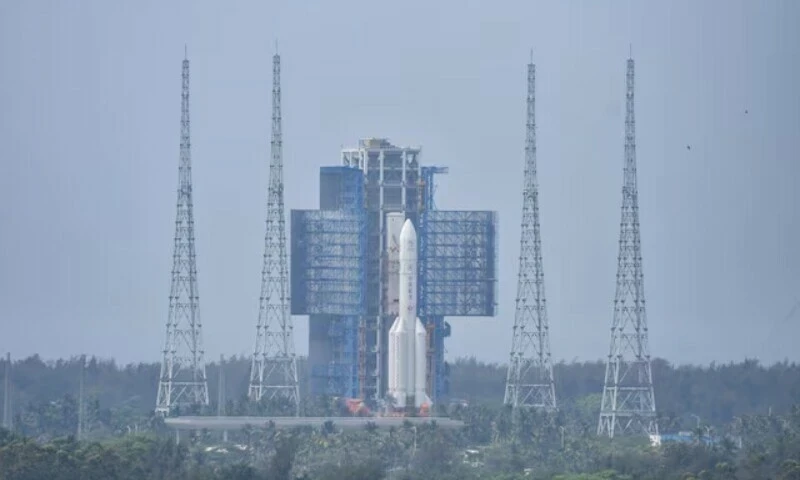Beijing, 2 May 2024 (TDI): The Institute of Space Technology (IST) is making history for Pakistan’s space program with the launch of its first lunar mission. The iCube-Q CubeSat was co-developed with China’s Shanghai University (SJTU) and Pakistan’s SUPARCO.
It will blast off on May 3rd at 12:50 PM Pakistan Standard Time. Moreover, it will hitch a ride on China’s Chang’e 6 mission.
“Pakistan’s ‘historic’ lunar mission to be launched on Friday aboard China lunar probe” via @dawn_com https://t.co/Dg4lzEyFFF
— Husain Haqqani (@husainhaqqani) May 1, 2024
Equipped with two optical cameras, the iCube-Q will image the lunar surface. It will undergo rigorous qualification and testing. IST has successfully integrated iCube-Q with the Chang’e 6 spacecraft.
China’s lunar mission will touch down on the moon’s far side to collect samples from the surface and return to Earth for research. The mission holds significance for Pakistan as it will also take a CubeSat satellite, iCube-Q, developed by IST.
CubeSats: Opening Up Space Exploration
CubeSats, miniature satellites with a standardized design, are revolutionizing space exploration. These tiny powerhouses, often weigh just a few kilograms. In addition to this, they tackle diverse missions.
Designed to propel scientific research, technology development, and space exploration education, CubeSats have taken on Earth observation.
Furthermore, they have features like remote sensing, atmospheric research, communication, astronomy, and technology demonstration missions.
Pakistan Takes a Giant Leap with CubeSats
CubeSats’ affordability compared to traditional satellites makes them ideal for universities, research institutions, and even commercial entities to join the space race and gather valuable data.
Following successful qualification and testing, iCube-Q has now been integrated with the Chang’e 6 mission. Chang’e 6 is the sixth in a series of China’s lunar exploration missions.
These miniature marvels act as testing grounds for new technologies and space exploration concepts. Moreover, they democratize access to space research and foster collaboration within the global space community.
Last year, India landed a craft near the Moon’s south pole, a feat Pakistan’s iCube-Q mission aims to emulate, marking a giant leap for Pakistani space exploration.



